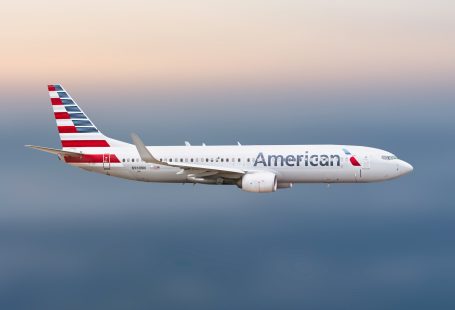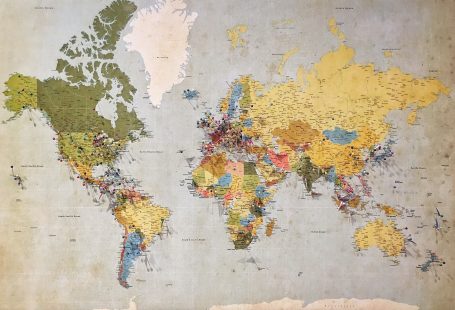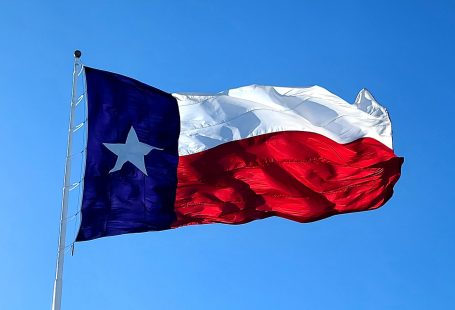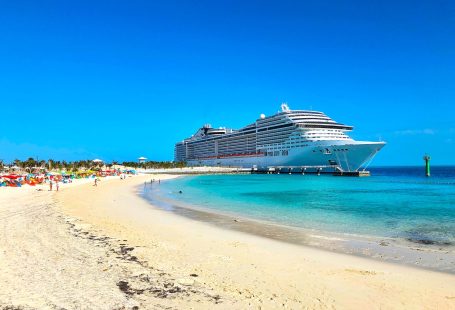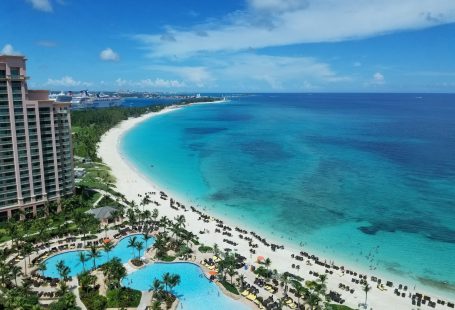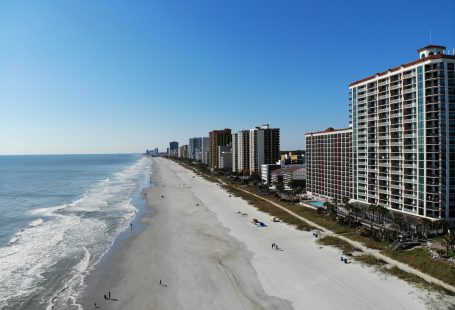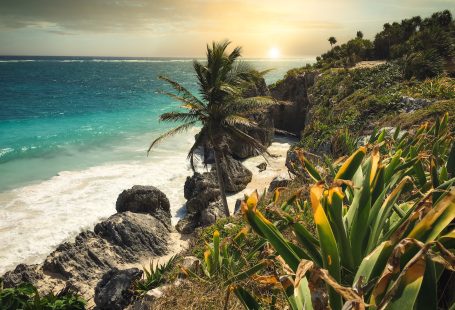The organization of a luxury vacation requires special knowledge, without which a thorough study of the recreation program is impossible. Luxury Travel experts have extensive experience in the segment of individual and VIP tourism. Over the years, such professionals have acquired the most reliable service providers abroad, who can be trusted with the most demanding customers. If you need exclusive accommodation, individual transfers and excursions in luxury cars, yacht rentals, additional services such as attending an opera or concert, helicopter …
Blog Posts
If you are a frequent traveller, then you probably know the frustration of having to pack and unpack your suitcase each time you go on a trip. However, it doesn't …
If you are traveling on an American Airlines plane and want to check emails, download songs and watch movies on your smartphone, you need to make sure that you have …
How big is Russia? It's actually the world's largest country in terms of area. With an estimated population of over 146 million people, it is hard to overstate the size …
If you want to cross the state of Texas, you have several options. From the highways to the interstates, you can get there in a variety of ways. You can …
A direct flight from Las Vegas to Honolulu will take you about five hours and forty-three minutes. You will also have to factor in the time spent waiting at the …
If you are planning a trip to the Bahamas, you probably want to know how long it will take you to get there. This tropical paradise is teeming with beaches, …
If you are planning on traveling to the Maldives from the United States, it is important that you have a plan. There are plenty of airlines that you can choose …
While a trip to the Bahamas might seem out of reach for some travelers, it is possible to enjoy a tropical getaway without breaking the bank. However, you need to …
If you are planning a trip to Myrtle Beach, South Carolina, you might be wondering how far is it. You can find out how long it takes you to get …
If you're considering taking a trip from Florida to California, it's important to calculate the total duration of your flight. This depends on the route you choose, the time of …
There are many options for transportation from Cancun to Tulum. You can choose a taxi, a shuttle, or you can hire a private vehicle. If you don't want to deal …
Whether you're planning a trip to Las Vegas for the first time or if you're a local who wants to visit for the weekend, there are a number of ways …
The average flight time between the United States and Dubai is 15 hours and 57 minutes, a figure that may be slightly shorter or longer depending on the wind speed. …
If you want to get to Iceland, you will need to book a flight. However, there are some important things to remember before you go. You need to know the …
If you are traveling from Fort Myers to Miami, you might want to know how far it is. The answer can be found by taking a look at a couple …
If you're planning on traveling to Texas, you may be wondering how long a flight to Dallas is from your hometown. Many people find this to be a confusing question …
Are you wondering how old you have to be in order to get a hotel room? While there are a few limitations, such as the minimum check in age, it …
If you are wondering how to check out of a hotel, there are a few simple things you should know. For starters, leave some money at the front desk. That …
- сафари дубай . svensk historia: peter k's authorship . https://axiom-trade.com/ . Crossroads Trading . crypto bot trading toolWhich US-based airline has the best airport lounges? AA’s Admirals Club offers refined dining at a cost. Delta’s Sky Club serves hot entrées all day but is crowded. What has recently emerged as a major improvement in the club scene is the United Club in selected airports, such as Newark Liberty International Airport (EWR), which combines an enormous space with an elegant design, a coffee bar staffed with a barista, and an extensive complimentary buffet of international cuisines. melhores zoologicos do brasil brasil melhores zoologicos Growel are widely known for manufacturer and supplier of cutting oil Mumbai India
-
Always keep copies of your important documents like passport, ID, travel insurance and tickets both digitally and physically with you while traveling. This can save you from a lot of inconvenience in case you lose the original ones.


